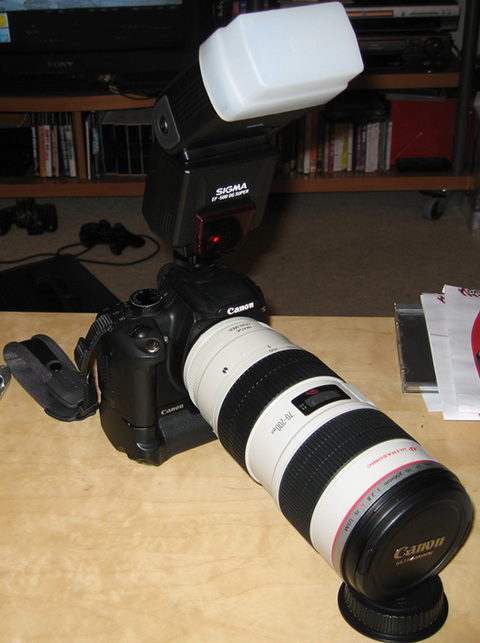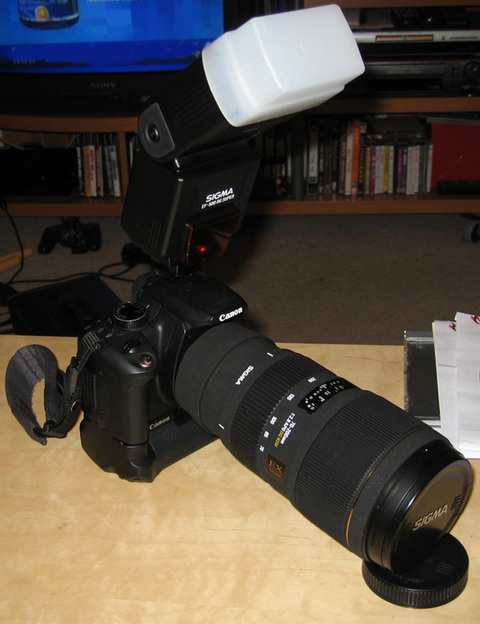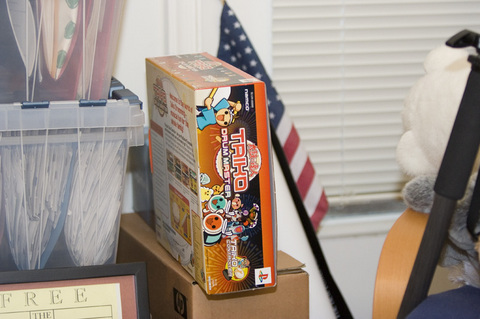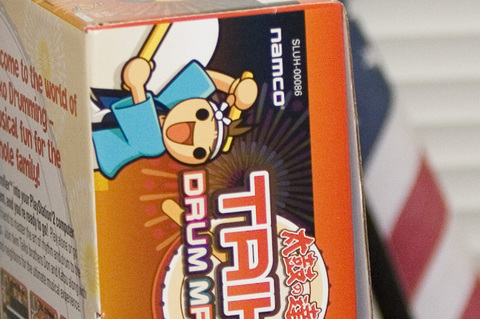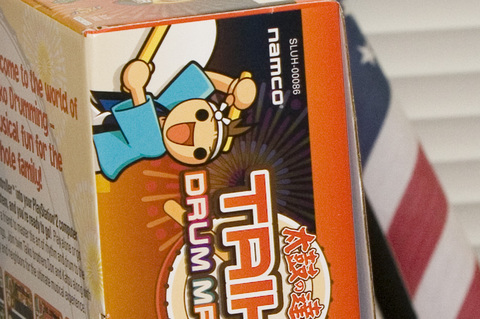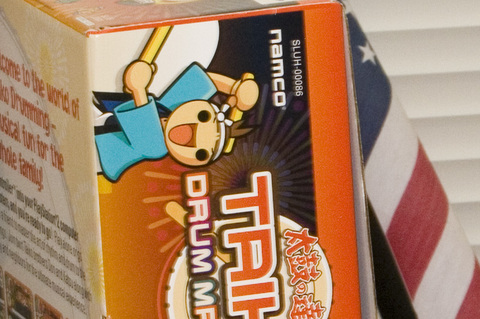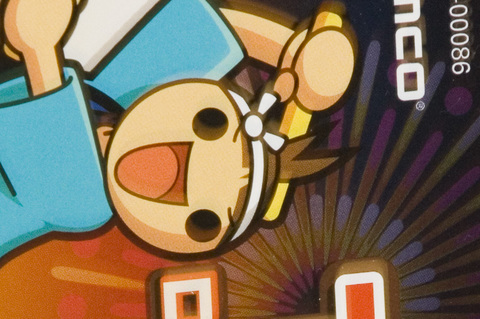This is part 2 (part 1 here) of my tests that I ran with the Canon 70-200 f/2.8 IS lens. For this entry I'll just be looking at the effectiveness of the image stabilization that apparently is worth $600 more according to Canon. But is it really? All shots taken handheld at ISO 800 indoors on a Canon Digital Rebel XT with BG-E3 grip attached and a Sigma EF-500 Super flash w/Sto-fen Omnibounce set at about a 45 degree angle. No post-processing done except for conversion to JPEG and shrinking down to 800x533.
First a few pics of the lens mounted:
And just two more similar shots with the Sigma 70-200 mounted just for comparisons sake.
These first two shots are at 70mm and f/2.8. At such a short focal length and large aperture, there shouldn't be much difference with IS on and off and these pictures seem to confirm that. The "Namco" seems to be a bit sharper with IS on but that's really splitting hairs.
A peek at the 100% crop pretty much tells the same story, very hard to tell the difference between the two.
Now with the next set at 70mm, f/5.6 we're able to better tell the difference between IS and no IS. With IS off the letters are looking a little soft due to camera shake.
With these 100% crops it's easier to see the fuzzy halo effect around the letters with no IS.
At 70mm, f/11, the shake with no IS shot is even more apparent as expected with such a small aperture. With IS on, it's not perfect but it's significantly better than without IS.
Looking at the 100% crops both are showing signs of movement but the one with IS on is still looking sharper.
Now the next 3 sets of pictures are at 200mm. I would expect the IS to really help out in this case because it's tough to get clear shots at 200mm handheld unless you're out in bright daylight and even then it's still a little touch and go. With these first shots at f/2.8, the no IS shot looks really good but the IS shot still comes out clearer/sharper (look at the drummer).
The 100% crop also shows a much sharper shot with IS turned on.
Next up is at f/5.6. I seem to have gotten lucky and taken a decent shot without IS but some areas you can still see a bit of a shift effect. With IS on, the picture is pretty stable throughout.
The 100% crop seems interesting with the non IS picture appearing clearer but with movement trails while the IS picture is softer but shows no movement. I must have moved a little during the non-IS exposure.
Finally at f/11, I seem to have lucked out again and got a very nice shot without IS (my test shot at f/8 was nowhere near as good). Which goes to show that just because you don't have IS doesn't mean you'll never get a good shot in low light at small apertures. Just the chances are lower. With IS you'll more consistently get decent shots.
The 100% crop shows pretty much equal quality between the non-IS and IS pic. Equally sharp with some motion detected. Again I really lucked out on the non-IS shot as this kind of shot is something I normally don't get with no IS at these settings.
So, is the IS worth it? IMO, from a usage standpoint, it is. Viewing your composition through the viewfinder at 200mm with the IS off and on makes it extremely obvious what IS does for you. With IS off, the scene is jumping all over the place in every direction no matter how steady you try to force yourself to be. Actually taking a shot with all that going on is pretty much luck of the draw. You may get a good pic, chances are higher that you won't. With IS on, the scene smooths out considerably. It's really quite impressive. Unfortunately my luck held out with the non-IS shots at small apertures so it's not as obvious in my test shots above but I think the IS does make a pretty nice difference. Although it can fool you into thinking you have the steadiest hands in the world.
I really want to try out my friend's Konica-Minolta Maxxum 5D with image stabilization built into the camera body itself. It should be pretty sweet. Too bad the lense selection and second-hand market for KM isn't as good otherwise I'd seriously consider switching.
